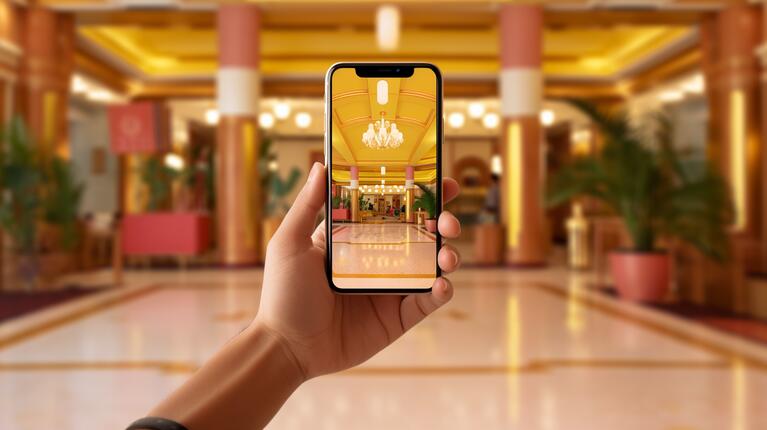Hospitality Social Media Strategies: The Rising Role of User-Generated Content
This article was contributed by our friends at ttagz, the UGC generation tool.
User-generated content (UGC) has become one of the cornerstones of an authentic and engaging marketing toolkit for brands across industries like FMCG, e-commerce, sport, entertainment and more.
UGC is a fantastic way to showcase products and services in a way that is genuine and trusted by new and existing customers. In fact, 85 percent of consumers find visual UGC more influential than brand photos or videos.
This article outlines UGC, how it’s evolved and the ways hospitality can leverage it.
The Emergence of User-Generated Content
We’ve all seen our friends and family sharing photos of their experiences in bars, restaurants and hotels, you’ve probably done it yourself (it’s OK to admit it, we’re all guilty). This, in essence, is UGC - content created voluntarily by consumers that can range from testimonials, photos, tweets, blog posts, and beyond.
UGC has skyrocketed in popularity for several reasons. Consumers trust peer reviews more than brand advertisements, and businesses have found that integrating UGC not only drives results but also bolsters brand credibility, in other words, businesses love it! So don’t feel ashamed to whip out your phone next time you’re served the most delicious looking chocolate pudding- it’s for the greater good remember.
Importance of UGC in Hospitality Digital Marketing
When people plan trips, dine out, or even choose a local cafe, they often turn to the experiences and recommendations of others. A staggering 92% of consumers place greater trust in word-of-mouth and peer reviews over traditional advertising. This trust underscores the power of UGC in influencing potential customers. The hospitality industry, with its picturesque venues, Instagrammable dishes, and memorable experiences, is perfectly poised to harness the benefits of UGC. Such content not only showcases the venue but also establishes authenticity, something staged professional photos might sometimes lack.
These spontaneous captures, shared by customers on their personal social media platforms, often reach a more engaged and relevant audience. After all, people are more likely to trust and be influenced by content shared by their peers, friends, or family. It's a ripple effect – one person's positive experience can influence the decisions of their entire social circle.
UGC is genuine and often reaches an audience who are more relevant to your business because the customers who capture UGC share it with their friends and family. We’ll look into shortcomings and strategies shortly, but before then, we’re often asked:
How much UGC should I use in my social media marketing strategy?
UGC and Social Media Strategies
Given how effective UGC is at social proofing, it’s important to include it as part of your social media strategy. Your content mix will depend on your objectives, target audience, platform usage, and available resources. However, a general allocation based on best practices and typical emphasis areas is as follows:
Source: ttagz
User-Generated Content (UGC):
Allocation: 30%
Reason: UGC acts as a form of social proof and allows prospective guests to see the experiences of previous guests. It's authentic and can often outperform brand-produced content in terms of engagement.
Pros:
- Builds trust and authenticity with audiences.
- Typically lower cost than produced content.
- Encourages community engagement and brand loyalty.
- Can increase SEO value if UGC is incorporated on websites.
Cons:
- Less control over content quality and messaging.
- Potential for negative or off-brand content.
- Intellectual property considerations (need permissions).
Effective UGC Campaign Examples
There have been numerous success stories where brands have leveraged UGC to their advantage. We’ve seen several businesses embracing UGC in their social media marketing strategies as a way to effectively generate content and create an authentic brand voice. Below are a couple of examples of a restaurant and hotel that have impressed customer created content:
Source: @smallbar_bristol & @newroadhote1
Challenges and Limitations of UGC
UGC is a raw form of marketing and as such, unpredictable and uncontrollable (unless you use a UGC tool). Negative reviews can harm a brand's reputation if not handled correctly, though this is less of a problem with UGC, where there is a higher prevalence of positive, quality content because people share it with their friends on their own profile, so they naturally want to create beautiful, engaging content.
Brands also need to be wary of the legal considerations of using user-generated content without explicit permission. Unfortunately, it’s not as simple as resharing UGC, brands need to go through the hoops of reaching out to customers individually and requesting permission to re-use content (again, unless you use a UGC tool).
Conclusion
Using a UGC tool such as ttagz offers a solution to the unpredictability of UGC. Instead of leaving it to chance, brands can guide the narrative, ensuring the content aligns with their brand image and values. This not only amplifies the volume of UGC but also its quality. ttagz has created a framework where users willingly share their content, knowing it might be repurposed by the brand. This eliminates the cumbersome process of seeking individual permissions and ensures all shared content is above board.
The use of UGC within hospitality marketing is more than just a trend. It's a testament to the evolving nature of consumer-brand relationships, that is, businesses are desperate to create and share authentic experiences. As UGC continues to shape this landscape, hospitality brands need to adapt, engage, and evolve to stay relevant.
We help help hotels reach their audience and generate revenue across all media. Discover how we can help you with your hotel marketing.
